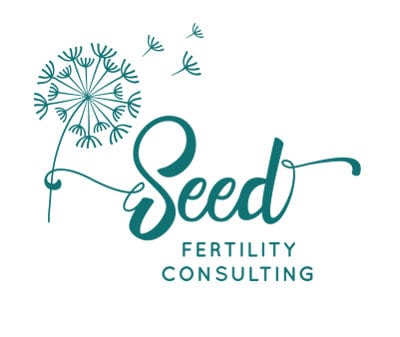If you have been trying to conceive and are struggling with infertility, your GP is likely to refer you to a Fertility Specialist for fertility treatment. For most people it’s scary, it’s overwhelming, and it’s definitely not what you had planned for your baby-making journey.
But what is fertility treatment? And what is IVF? Be reassured, just because you are going to see a Fertility Specialist, it doesn’t mean you need to have IVF.
There are three options when it comes to having fertility treatment and which one will be recommended for you depend on why you haven’t been able to conceive so far, age, and how long you have been trying.
Ovulation induction
The simplest option, and still widely used treatment, is Ovulation Induction (OI). Here, a tablet (Clomiphine Citrate or Letrozole) is taken in the early days of your cycle, which increases follicle stimulating hormone (FSH) to grow follicles (containing eggs) in the ovary and assists the usual progression of the menstrual cycle. You still have sex to become pregnant, but you are told when to time it based on your response to the tablets. This treatment is useful for women who don’t ovulate or have irregular cycles.
Intra-uterine insemination
Moving on from Ovulation Induction is Intra-uterine Insemination (IUI), or Artificial Insemination. This involves using sperm that has been prepared in the lab being injected into the uterus with a fine tube that passes through the cervix. It is usually performed by a Fertility Nurse, and the procedure is very similar to having a smear test. The mechanics of it is basically like perfectly timed sex, but the best sperm is selected, and is put exactly where it needs to be, ready to meet the egg as it travels down the fallopian tube after ovulation. Usually tablets or injections are used to stimulate extra follicle growth, but it can be done naturally, just relying on the women’s natural cycle. IUI is useful for treating cervical mucous issues, mild male-factor infertility, for same sex couples and mild ovulation issues.
In vitro fertilisation
The next step in treatment options brings us to In Vitro Fertilisation (IVF), which can be used to treat infertility in many situations, such as blocked or damaged fallopian tubes, low sperm count, ovulation disorders, PCOS, and unexplained infertility. This has the best overall results, but there is a lot more involved. IVF can be explained as ‘fertilisation outside of the body’. The essence of IVF is retrieving eggs and a sperm sample and combining them in a petri-dish to fertilise. The best developing embryo is selected after 3-5 days and put back inside the woman’s uterus in a procedure call embryo transfer, or embryo replacement.
In order to obtain eggs from the woman, injections of Follicle Stimulating Hormone are given daily to recruit growth of multiple follicles, instead of just the one that would normally be produced in a menstrual cycle. The eggs are then retrieved in a quick theatre procedure and are sent through to the scientists in the lab, where the sperm sample (partner’s or donor’s) is combined with the eggs to let nature take its course. If the sperm need help to fertilise the eggs, the best sperm can be injected into the eggs in a procedure called ICSI (Intra-Cytoplasmic Sperm Injection).
The ideal conditions are created for the embryo during treatment to give the best chance of a successful pregnancy. However, it is impossible to make someone pregnant – (the fertility world would be very different if this was the case!), so unfortunately not all IVF cycles will result in pregnancy. Any suitable embryos that were left over are frozen, ready to use for another try.
A helping hand
All these above treatments are helpful in achieving pregnancy, but they do have their risks and significant costs involved. There are steps you can take to increase your chances of conceiving, before reaching the point of needing fertility treatment. Understanding your cycle and your fertility is a crucial, but often discounted step in the process. For many people, having fertility treatment in some form is the only way they will achieve pregnancy, but a little bit of the right information at the beginning of the journey can go a long way.
Seed Fertility can get you up to speed with insightful fertility knowledge and set you on your path to pregnancy.
This article was written by Bex Henderson from Seed Fertility Consulting. Bex is a Registered Nurse, Fertility Consultant and Trained Teacher in Natural Fertility. She has worked for many years as a Fertility Nurse in Fertility/IVF clinics in Australia and NZ and has recently launched Seed Fertility Consulting to assist women and couples who want to try to have a baby or are struggling to become pregnant. Bex consults nationwide and lives in the Wairarapa with her husband and two little boys, aged 5 and 2.
Read more on Kidspot:








A great list to have for those trying for a baby. It is a very hard journey that some of us find ourselves on – conception. Some people find it really easy to get pregnant while others struggle – those that struggle often don’t know where to start looking for help and what options are available for those needing help.
Thank you for this article. A little timely as we are trying for number 2 for a little while. We hope to do this naturally too but it’s good to know there are options. Of course, cost is always something to consider too.
I’m so grateful that there are options for those of us who are not as fertile. I had some issues though I did manage to conceive naturally. I know a few babies though that are here because of science, and it’s wonderful. They are wonderful and their parents are awesome too.
If I couldn’t get pregnant naturally I would want to try what ever worked best for me with the help of doctors. Most people will want to try anything but others will give up and be happy with no children. It is interesting to read of all the different ways you can get pregnant and as everyone is different one may work for some but not others.
I know families who have been through IVF, some failed and some didn’t. It’s a very stressful, difficult but also exciting time. I was lucky enough to be able to conceive naturally at 41, however know that going through something like IVF is not easy
I think its amazing what they can do these days and I’m glad that there is hope for those trying to have a child. It is just a shame that it is so expensive.
This is a very interesting read. I never really honestly knew there were so many steps to go through. I found this very intreging.